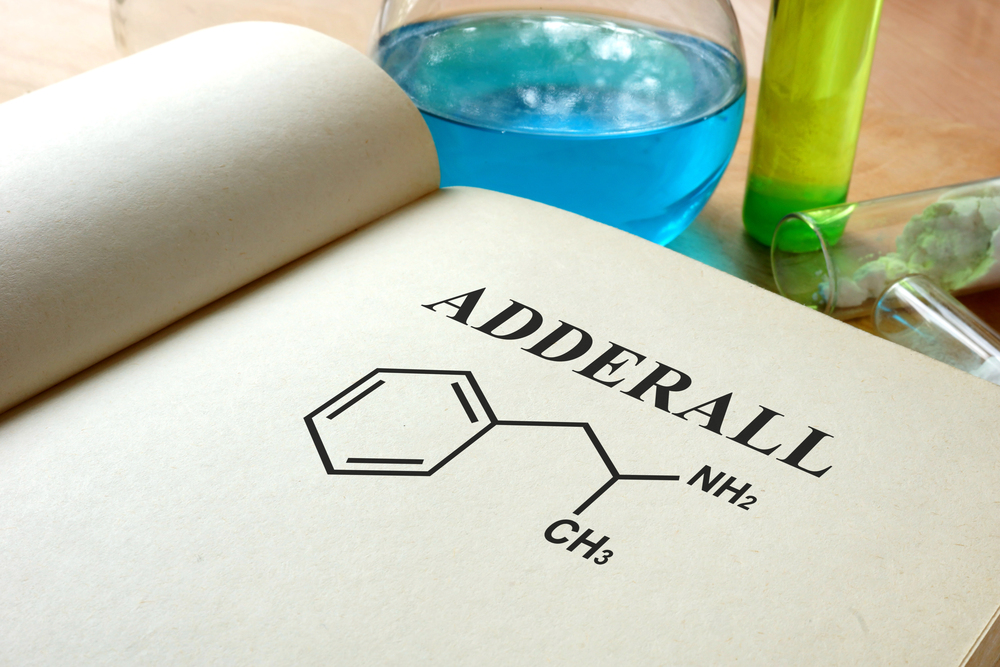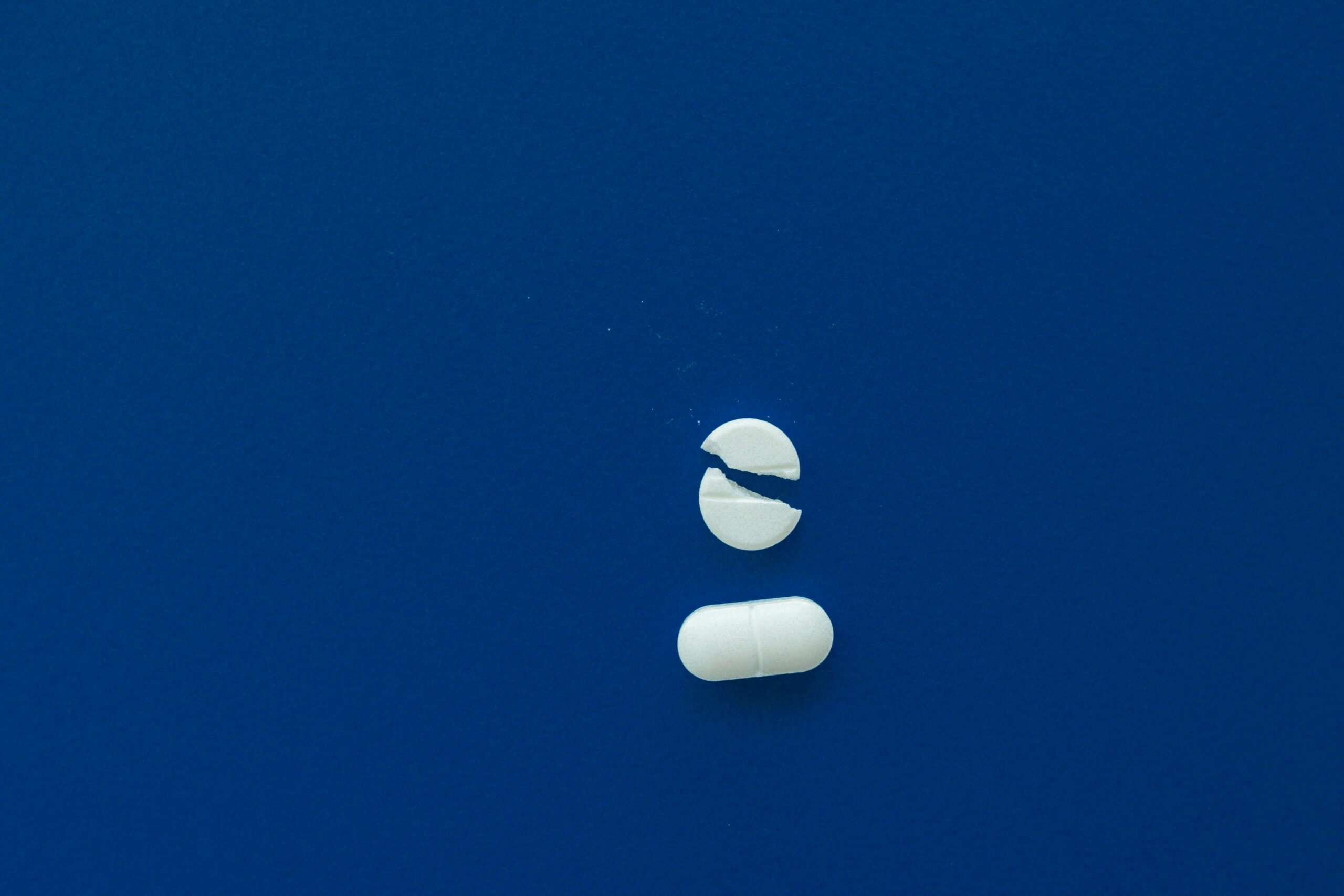Adderall and cocaine are both powerful stimulants that affect the central nervous system, leading to increased alertness, energy, and attention. While Adderall is a prescription medication used primarily to treat Attention-Deficit/Hyperactivity Disorder (ADHD) and narcolepsy, cocaine is an illegal substance with a high potential for abuse and addiction. Despite their differences in legal status and medical use, both substances share certain characteristics that can lead to confusion and misuse. This comprehensive guide aims to explore the similarities and differences between Adderall and cocaine, shedding light on their effects, risks, and the importance of using medications responsibly. By understanding these substances, individuals can make informed decisions and promote safer practices regarding stimulant use.
Table of Contents
ToggleWhat Is Adderall?
Composition and Medical Use
Adderall is a prescription medication composed of a combination of amphetamine salts: amphetamine and dextroamphetamine. It is commonly prescribed for:
- Attention-Deficit/Hyperactivity Disorder (ADHD): Helps improve focus, attention, and impulse control.
- Narcolepsy: A sleep disorder characterized by excessive daytime sleepiness and sudden sleep attacks.
How Adderall Works
- Mechanism of Action: Adderall increases the levels of neurotransmitters dopamine and norepinephrine in the brain, enhancing neural communication and activity in areas responsible for attention and behavior control.
- Formulations:
- Immediate-Release (IR): Effects last about 4-6 hours.
- Extended-Release (XR): Designed to release the medication gradually over 12 hours.
Legal Status
- Controlled Substance: Classified as a Schedule II drug in the United States, indicating a high potential for abuse but accepted medical uses.
- Prescription Requirement: Only available legally through a prescription from a licensed healthcare provider.
What Is Cocaine?
Composition and History
Cocaine is a powerful stimulant drug derived from the leaves of the coca plant native to South America. Historically, it has been used for medicinal purposes but is now primarily recognized as an illegal recreational drug.
- Forms of Cocaine:
- Cocaine Hydrochloride: A fine, white crystalline powder commonly snorted or injected.
- Crack Cocaine: A form processed to create a rock crystal, which is smoked.
How Cocaine Works
- Mechanism of Action: Cocaine blocks the reuptake of neurotransmitters dopamine, norepinephrine, and serotonin, leading to an accumulation in the brain and heightened neural activity.
- Routes of Administration:
- Snorting: Absorption through nasal tissues.
- Smoking: Inhalation of vapor or smoke into the lungs.
- Injection: Direct entry into the bloodstream.
Legal Status
- Illegal Substance: Classified as a Schedule II drug due to high abuse potential and limited medical use in specific surgical procedures as a local anesthetic.
- Criminal Penalties: Possession, distribution, or manufacture is illegal under federal and state laws.
Chemical Similarities and Differences
Chemical Structures
- Adderall: Consists of mixed amphetamine salts.
- Cocaine: A tropane alkaloid with a different chemical structure but similar stimulant effects.
Impact of Chemical Differences
- Potency and Duration:
- Cocaine: Rapid onset with a short duration of action (15-30 minutes when snorted).
- Adderall: Slower onset with effects lasting several hours.
- Metabolism:
- Cocaine: Metabolized quickly, leading to brief effects and a higher potential for repeated use.
- Adderall: Longer half-life, providing sustained therapeutic effects when used as prescribed.
Effects on the Brain and Body
Adderall’s Effects
- Therapeutic Effects:
- Enhanced focus and attention.
- Improved control over impulsive behaviors.
- Common Side Effects:
- Insomnia.
- Decreased appetite.
- Dry mouth.
- Elevated heart rate and blood pressure.
- Risks of Misuse:
- Dependency and addiction.
- Cardiovascular issues.
- Mental health problems like anxiety and paranoia.
Cocaine’s Effects
- Immediate Effects:
- Intense euphoria.
- Increased energy and alertness.
- Heightened confidence.
- Short-Term Side Effects:
- Constricted blood vessels.
- Dilated pupils.
- Increased body temperature, heart rate, and blood pressure.
- Long-Term Risks:
- Heart attacks and strokes.
- Respiratory failure.
- Neurological effects such as seizures and headaches.
- Mental health issues like depression and psychosis.
Abuse and Addiction Potential
Adderall
- Risk Factors for Abuse:
- Non-prescribed use for studying, weight loss, or recreational purposes.
- Taking higher doses than prescribed.
- Signs of Abuse:
- Restlessness and insomnia.
- Extreme weight loss.
- Social withdrawal.
- Obsessive behavior patterns.
- Addiction Treatment:
- Behavioral therapies, including Cognitive Behavioral Therapy (CBT).
- Counseling and support groups.
Cocaine
- High Abuse Potential:
- Rapid onset of euphoria leads to a strong psychological dependence.
- Signs of Addiction:
- Intense cravings.
- Neglect of personal and professional responsibilities.
- Financial problems due to spending on drugs.
- Treatment Challenges:
- Severe withdrawal symptoms like depression and fatigue.
- High relapse rates without comprehensive support.
- Treatment Options:
- Medical detoxification.
- Inpatient and outpatient rehabilitation programs.
- Behavioral therapies and support networks.
Comparing Adderall and Cocaine
Similarities
- Stimulant Properties:
- Both increase levels of dopamine and norepinephrine.
- Enhance alertness, energy, and concentration.
- Potential for Abuse and Dependence:
- Misuse can lead to addiction.
- Psychological dependence may develop with repeated use.
Differences
- Legal Status and Medical Use:
- Adderall: Legal prescription medication with accepted medical uses.
- Cocaine: Illegal substance with limited medical application as a local anesthetic.
- Potency and Effects:
- Cocaine: Produces a more intense and immediate euphoria but with a shorter duration.
- Adderall: Provides steadier, longer-lasting effects when used therapeutically.
- Health Risks:
- Cocaine: Higher risk of acute cardiovascular events, severe mental health issues, and legal consequences.
- Adderall: Lower risk when used as prescribed; misuse increases health risks but generally less severe than cocaine.
- Withdrawal Symptoms:
- Cocaine: Includes severe depression, fatigue, increased appetite, and agitation.
- Adderall: May involve fatigue, depression, and sleep disturbances.
Case Studies
Case Study 1: Mark’s Misuse of Adderall
Mark, a high school student, began using his friend’s Adderall to enhance his academic performance. Initially, he noticed improved concentration and grades. However, he started taking higher doses to maintain the effects, leading to insomnia and weight loss. Mark’s parents noticed the changes and intervened. With professional help, Mark addressed his misuse through counseling and learned healthier study habits.
Case Study 2: Lisa’s Battle with Cocaine Addiction
Lisa, a 30-year-old marketing executive, was introduced to cocaine at social events. The drug’s euphoric effects helped her cope with work stress. Over time, she became dependent, experiencing financial strain and health issues. After losing her job, Lisa sought help at a rehabilitation center, where she underwent detoxification and participated in therapy. She is now in recovery and attends support group meetings regularly.
Expert Opinions
Dr. Angela Martinez, Clinical Psychologist
“While Adderall and cocaine are both stimulants, their use contexts are vastly different. Adderall, when prescribed and monitored, can significantly improve the lives of those with ADHD. Cocaine, lacking legitimate therapeutic use in most contexts, poses substantial risks of addiction and health complications. Misuse of any stimulant carries dangers, underscoring the need for education and responsible use.”
Dr. Samuel Lee, Addiction Specialist
“Understanding the pharmacological differences between Adderall and cocaine helps dispel myths and reduces stigma. Recognizing the signs of misuse and providing early intervention are critical in preventing the escalation to addiction.”
Data and Statistics
- Adderall Misuse Among Young Adults:
- Approximately 5.3% of college students reported misusing Adderall in the past year (Monitoring the Future Survey, 2018).
- Cocaine Use in the United States:
- An estimated 2% of the population aged 12 or older reported using cocaine in their lifetime (NSDUH, 2019).
- Cocaine-involved overdose deaths increased to over 15,000 cases in 2019 (CDC).
Safety Measures and Responsible Use
For Adderall Users
- Strict Adherence to Prescriptions:
- Take only as directed by a healthcare provider.
- Do not share medication with others.
- Regular Medical Monitoring:
- Attend follow-up appointments.
- Report any side effects or concerns.
- Lifestyle Integration:
- Combine medication with behavioral therapies.
- Maintain healthy sleep, diet, and exercise routines.
Preventing Misuse
- Education: Understand the risks associated with non-prescribed use.
- Secure Storage: Keep medications in a safe place.
- Open Communication: Discuss concerns with healthcare providers or counselors.
Understanding the Risks of Cocaine Use
Health Risks
- Cardiovascular Complications: Heart attacks, arrhythmias, and hypertension.
- Neurological Effects: Strokes, seizures, and cognitive impairments.
- Mental Health Issues: Anxiety, depression, psychosis, and suicidal ideation.
- Infectious Diseases: Increased risk of HIV and hepatitis with injection use.
Social and Legal Consequences
- Legal Penalties: Arrest, incarceration, and a criminal record.
- Relationship Strain: Isolation from friends and family.
- Occupational Impact: Job loss and unemployment.
Frequently Asked Questions
Q1: Can using Adderall lead to cocaine use?
A: While Adderall misuse may increase the risk of experimenting with other stimulants due to seeking more intense effects, there is no direct causation. Responsible use under medical supervision minimizes this risk.
Q2: Is it safe to use Adderall without a prescription for studying?
A: No, using Adderall without a prescription is illegal and can lead to serious health risks, including addiction and adverse side effects.
Q3: Are the effects of Adderall and cocaine similar?
A: Both are stimulants and can increase alertness and energy. However, cocaine produces a more intense and immediate euphoria with higher risks, while Adderall’s effects are steadier and intended for therapeutic use.
Q4: How can I tell if someone is misusing stimulants?
A: Signs include changes in behavior, sleep disturbances, weight loss, secretiveness, and neglect of responsibilities. Physical signs may vary between substances.
Q5: What should I do if I suspect stimulant misuse?
A: Encourage the individual to seek professional help. Offer support and avoid judgment. Consult healthcare professionals for guidance.
Conclusion
Adderall and cocaine, while both stimulants, differ significantly in their medical applications, legal statuses, and risk profiles. Adderall is a prescription medication that, when used responsibly under medical supervision, can effectively manage ADHD symptoms and improve quality of life. Cocaine is an illegal drug with high potential for abuse and severe health consequences.
Understanding these differences is essential for promoting safe practices, preventing misuse, and supporting those who may be struggling with substance abuse. Education, open dialogue, and access to professional resources play critical roles in addressing the challenges associated with stimulant use.
If you or someone you know is experiencing issues related to Adderall misuse or cocaine abuse, help is available. Early intervention can lead to successful recovery and a healthier future.
Take the Next Step with Renew Health
At Renew Health, we are committed to providing compassionate, personalized care for individuals facing substance misuse and mental health challenges.
Our Services Include:
- Comprehensive Assessments: Tailoring treatment plans to individual needs.
- Medical Detoxification: Safe management of withdrawal symptoms.
- Therapeutic Support: Access to counseling, behavioral therapies, and group support.
- Family Involvement: Engaging loved ones in the recovery journey.
- Aftercare Planning: Ongoing support to maintain sobriety and well-being.
Renew Health: Empowering you to overcome substance misuse with evidence-based care and unwavering support. Your health and happiness are our priorities.
Actionable Takeaways
- Use Medications Responsibly
- Only take prescription medications as directed.
- Do not share or misuse stimulant medications.
- Stay Informed
- Educate yourself about the effects and risks of stimulants.
- Recognize the signs of misuse and addiction.
- Promote Open Communication
- Foster honest discussions about substance use.
- Seek professional advice when concerns arise.
- Support Those in Need
- Offer empathy and assistance to individuals struggling with substance use.
- Encourage engagement with treatment resources.
- Prioritize Mental Health
- Address underlying mental health conditions.
- Incorporate holistic approaches for overall well-being.
Final Thoughts
Understanding the nuances between Adderall and cocaine is vital in addressing the complexities of stimulant use and misuse. By fostering awareness, promoting responsible medication practices, and supporting those affected by substance abuse, we contribute to healthier communities and better outcomes for individuals.
Remember, recovery is possible, and help is available. Taking informed action is a powerful step toward positive change.




